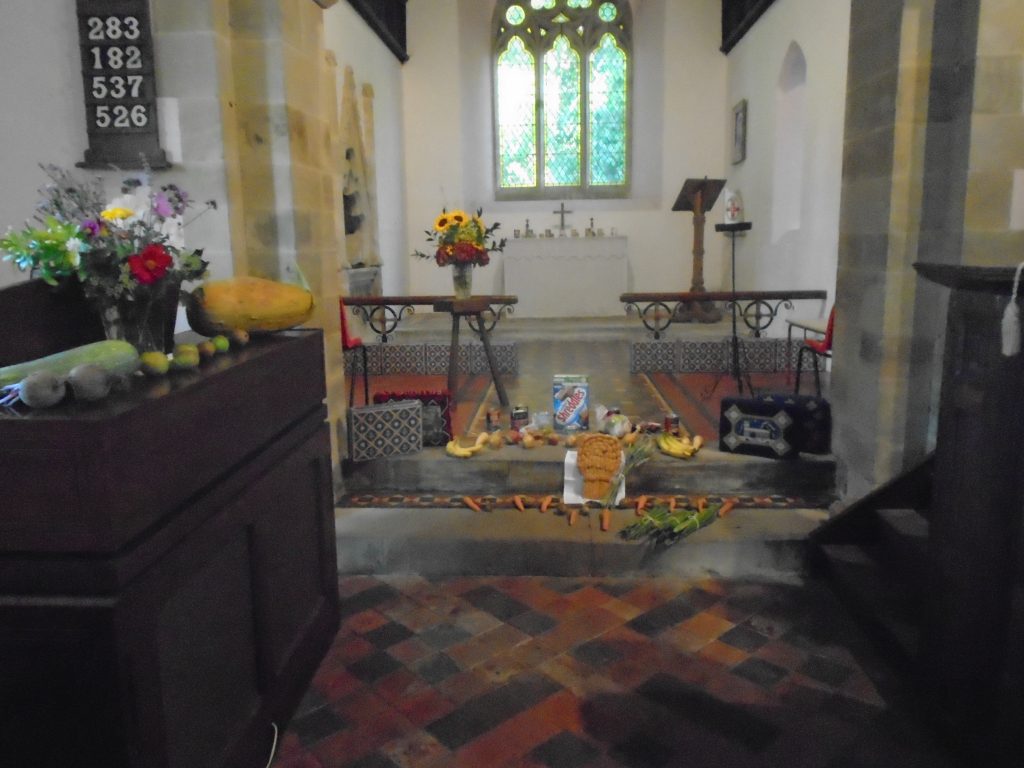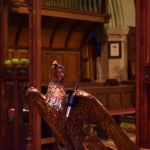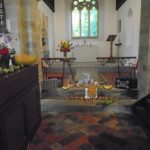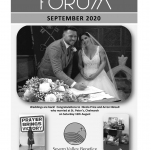Featured News
Featured News
Thought for the Week – 27/09/2020
For me, this has been a busy week. I work at Aston University, on Monday the new term starts and our students have been arriving over the past few days. On Friday I met my new tutees; the students who have just arrived and for whom I will have pastoral responsibility over their time with us. Of course, this will be a year like no other, but some things were familiar. Every time I do this, I’m taken back to when I was a newly-arrived student, meeting my tutor for the very first time. That was now over forty years ago (!), but the memory remains fresh. The emotions are still vivid; a mixture of excitement, apprehension and uncertainty; perhaps really a dash of fear. I was now entering a new phase of my life; what would the future hold? And, so imperfectly over a computer screen, as I spoke with my new students and listened to their questions, I sensed at least some of them were having exactly the same emotions.
The truth is that every moment of our lives, we are facing the future. Often it is very predictable but we can never be sure what opportunities and challenges will face us. Occasionally we are particularly aware that we are moving to a new phase of our lives, but those moments only happen because of a host of decisions we have taken earlier and events that have happened to us.
As a vicar, I start my day by saying Morning Prayer, a short service available online (www.churchofengland.org/prayer-and-worship/join-us-service-daily-prayer) . I do it because it grounds me at the start of the day; it reminds me of who I am and what I should be. Almost at the start of this service are the words “The night has passed, and the day lies open before us; let us pray with one heart and mind.” I love that phrase; the first part reminds me that no matter how routine I expect the day to be, it has potential. The is double-edged, potential for things to go well or to go badly. That is where the second part comes in; whatever happens, I will face that day with God.
Rev David Poyner
Chelmarsh Harvest Talk with David Dutton
Thought for the Week – 20/09/2020
In praise of spontaneity
The day dawns fine and clear. Unexpectedly, there is a window in my diary; the expected work has not yet materialised. I have a day of freedom!
A few months ago, there were endless opportunities when this happened. I do recall some years ago when the trains were in chaos with the line to Birmingham likely to be blocked for hours. What happened immediately after the “abandon hope all ye who enter here” announcement on the station is still mysterious to me; the next thing I remember was pulling on my walking boots at the foot of Tryfan, a mountain in Snowdonia and having a very enjoyable day on the hills.
One of the less remarked effect of Covid is that our ability to opt for leisure activities on the spur of the moment have been significantly curtailed. With the easing of lockdown (for the moment!), a day in the hills is now possible. However, a trip to a museum is now much harder, with most establishments requiring advanced booking. Of course, it is just a minor irritation, but it does remind me of a lost freedom.
Spontaneity can be a great joy; it opens up a world of unexpected opportunities and pleasures. It allows us to delight in the world, to experience joy in ways we never imagined. Jesus spoke of how the wind, that is the Holy Spirit, blows where it will; I think by that he was telling us that God also acts on the spur of the moment, in ways which we cannot imagine. Whilst some of our spontaneity has, currently, to be restricted we should still treasure what we have and expect to see God at work in the unplanned.
Rev David Poyner
Thought for the Week – 13/09/2020
This is the time of year when we celebrate harvest but what does harvest mean for you? Perhaps it’s the familiar hymns that we sing, or the church decorated with flowers and home-grown fruit and vegetables.
Here we live in a very rural part of the country and we see evidence all around us of the yearly cycle of ploughing, sowing, nurturing and reaping. We are aware of how closely related our lives are to the land and the farmers who work, day by day, throughout the year to ensure the harvest. Those who live in cities do not see this so clearly; harvest is represented by the food that is available in the supermarket – the colourful array of fruits and vegetables which seem to be in constant and abundant supply, whatever the season, transported across the world so we can eat our fill.
As we gather together in our churches to celebrate Harvest, to give thanks to God for all that he provides year after year, we are also conscious that there are many parts of the world where the harvest is poor or fails entirely, and people go hungry, or where people are refugees and cannot even sow and reap. In the Bible there is a story about a woman called Ruth; a woman living in a foreign place because of her loyalty to her mother-in-law, and because she chose to accept God in her life. There she encountered kindness from a landowner called Boaz, who not only allowed her to gather left over grain from his harvest fields, but also instructed his workers to deliberately leave some extra for her to gather.
We too can show kindness and generosity by providing for others from the abundance of what God gives to each of us. It may be by can supporting the local food bank, or we can give our time or some of our resources to charities that help to ensure that those who are hungry will be fed. We are called to live generously, even sacrificially, so that others too may have life. Not just at harvest time but each and every day.
What will harvest mean for you this year?

Mary Rayner



